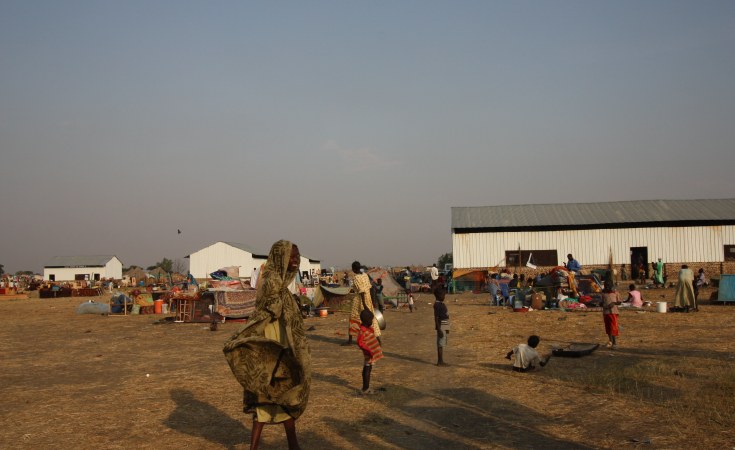London — An investigation by The New Humanitarian and Al Jazeera revealed years of widespread abuse allegations against aid workers at the UN-run camp in Malakal.
UN chief António Guterres has called for an "urgent report" on what actions UN officials in South Sudan are taking to "ensure accountability" after an investigation by The New Humanitarian and Al Jazeera revealed years of widespread sexual abuse allegations against aid workers at the UN-run displacement camp at Malakal.
"The Secretary-General is appalled by these allegations of sexual exploitation and abuse which causes irreparable harm to victims and their families," read a statement emailed to The New Humanitarian by Guterres's spokesperson, Stéphane Dujarric de la Rivière.
"The Secretary-General has asked for an urgent report on the immediate actions being taken by the UN country team to address sexual exploitation and abuse across our operations in South Sudan and ensure accountability," the statement added.
The investigation, published earlier on 22 September, found that although aid officials were well aware of abuse allegations at the UN-run Protection of Civilians (PoC) camp in Malakal as early as 2015, they have been continuing despite the efforts of a UN task force.
Local aid workers with the International Organization of Migration (IOM), Médecins Sans Frontières (MSF), the World Food Programme (WFP), and World Vision were named among the alleged perpetrators. Allegations included rape and sexual abuse of minors, as well as pressuring women and girls to have sex for gifts, and other examples of exploitation.
In a 21 March 2022 letter - sent to some 17 aid groups working in the camp, and obtained by The New Humanitarian and Al Jazeera - Sara Beysolow Nyanti, deputy head of South Sudan's UN peacekeeping mission, expressed her "greatest alarm" at the "increased incidents of sexual abuse and exploitation" in Malakal, which hosts some 37,000 people. Nyanti's letter had not been made public prior to the investigation.
The statement from Guterres noted that: "The new UN Resident Coordinator in South Sudan, Sara Beysolow Nyanti, has been upfront in addressing these allegations and concerns since her appointment."
The statement, which was sent to The New Humanitarian after publication despite a request for comment several days earlier, failed to address several questions, including: whether Guterres was aware of the numerous red flags raised over the abuse at Malakal; and whether he would call for an investigation into what went wrong with the UN task force set up to stem the abuses.
Experts on sexual abuse in the aid sector reacted with dismay if not surprise at the revelations, which follow similar scandals, including the abuse of more than 70 women by Ebola aid workers in the Democratic Republic of Congo in 2018-2020 - uncovered in a separate investigation by The New Humanitarian and the Thomson Reuters Foundation.
"That #abuse continues should be no surprise to anyone serious about prevention of #SEA. We know that sexual abuse happens in every #humanitarian response as it does in all societies - it requires sustained action by all agencies to #prevent and #protect," tweeted Gareth Price-Jones, executive secretary of the Steering Committee for Humanitarian Response.
"As the article notes, its an expectable outcome of the vast power differentials between those delivering and receiving #aid. No agency is immune, but some are much better than others at #prevention, including by proactively investigating where the number of reported cases is low."
Paisley Dodds, Investigations Editor


